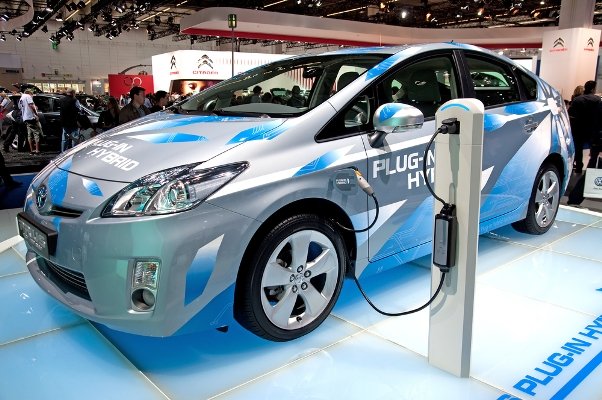ISLAMABAD: The wheels of change are finally in motion and they’re electric.
In a long-awaited move that signals a major shift in Pakistan’s energy and transport landscape, the federal government has rolled out the National Electric Vehicle (NEV) Policy 2025–30. With the ambitious goal of converting nearly one-third of all new vehicle sales to electric by 2030, the policy aims to cut pollution, curb fuel imports, and supercharge local industry all in one sweeping push.
Unveiling the policy in Islamabad, Special Assistant to the Prime Minister on Industries and Production, Haroon Akhtar Khan, said the initiative marks a “defining moment” in the country’s economic and environmental reform journey. “We’re not just introducing a policy. We’re igniting a national transformation one that touches industry, energy, health, and climate,” he said.
The policy sets aggressive targets: an estimated 2.07 billion liters of fuel saved annually, over $ 1 billion in foreign exchange spared, and 4.5 million tons of carbon dioxide emissions avoided. Add to that a projected USD 405 million in health-related savings each year, and the scale of impact begins to take shape.
But the vision is not just high-level it’s grounded in action. The government has earmarked Rs. 9 billion in subsidies for FY 2025–26, focusing primarily on the mass adoption of electric bikes and rickshaws. Over 116,000 e-bikes and more than 3,100 electric rickshaws will be subsidized, with 25 percent of the benefit exclusively reserved for women a move aimed at improving mobility for working women and students across the country.
To eliminate red tape, the entire subsidy process will be managed through a digital platform that handles everything from application to disbursement. On the infrastructure side, 40 EV charging stations will be installed on national motorways, roughly every 105 kilometers, along with plans for battery swapping systems and EV-compatible building codes in urban areas.
Perhaps most striking is the policy’s emphasis on local production. Pakistan already manufactures over 90 percent of components for electric two- and three-wheelers. Under the new plan, small and medium enterprises will receive targeted support, and the existing tariff incentives under the AIDEP regime will continue until 2026 before being phased out gradually.
Behind the scenes, the policy took shape through months of consultation with over 60 stakeholders, including industry leaders, technical experts, and policy institutions. A steering committee under the Ministry of Industries and Production will oversee its implementation, supported by performance audits every six months and regular reviews shared with the Prime Minister’s Office and the public.
The policy is not just about cleaner air or cheaper commutes it’s also a major economic play. Projections suggest it could save the national economy up to Rs. 800 billion over the next two and a half decades, while also unlocking Rs. 15 billion annually from carbon credit revenues. A special levy on new petrol and diesel vehicle sales will also be introduced to help finance EV subsidies and nudge consumer behavior in favor of cleaner alternatives.
According to Haroon Akhtar, an average consumer buying an electric bike today even at a higher upfront cost of Rs. 150,000 can recover the full investment in less than two years due to fuel savings alone. “We’re putting real money in people’s pockets while making the air they breathe cleaner,” he noted.
With an estimated energy demand of 126 terawatt-hours over the next five years for EVs well within the capacity of Pakistan’s existing power surplus the transition is not only feasible, it’s also timely. The government believes that moving transport to electric power will reduce capacity payments, ease pressure on oil imports, and strengthen Pakistan’s international climate commitments under the Paris Agreement.
Provinces have been tasked with simplifying EV registration, integrating charging requirements into construction codes, training emergency responders, and aligning with the federal framework. Meanwhile, the private sector is being called upon to invest, innovate, and scale especially as demand for affordable e-mobility options grows across cities and rural areas alike.
In Mr. Akhtar’s words, the NEV Policy 2025–30 is not just a document — it’s a blueprint for the Pakistan of tomorrow: cleaner, cheaper, smarter.




